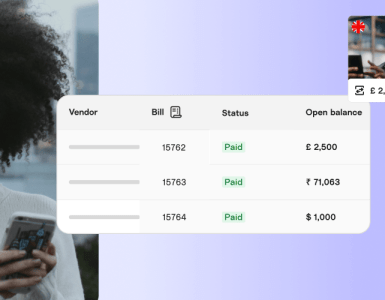Freelancing has been around for some time, but has increased by leaps and bounds recently. For freelancer clients, the world is only getting bigger.
At a time when job losses seem to be the order of the day in the wake of the Covid-19 pandemic, thousands of skilled workers are heading online for hope in the form of freelance work.
Multiple freelance openings have also come as a silver lining for those looking to supplement their current income.
So, with the current competition, how can you make yourself indispensable as a freelancer?
Having worked as a freelancer myself on several projects (but with more experience in hiring and managing freelancers), here are some killer tips based on the observations I’ve made. The tips in this article aim to serve as a useful guide for maintaining a successful collaboration, for both the employer and the freelancer.
It’s in the interest of all parties involved that there’s always a next project to work on — together.
Overview
According to Wikipedia, freelance is someone who works on short-term projects, without commitment to any one particular entity. (One could also refer to them as mercenaries, although, personally, I’m not a fan of the negative connotation associated with the word).
Suppose a business hires a freelancer for a specific task, like developing or designing a product/service or campaign; there is a high chance that your competitors are trying to hire the same person by offering them more money.
Doesn’t this look like a mercenary job?
Whether or not it’s a mercenary job, here are some traits that I found to be most invaluable from a freelance hiring perspective.
All of this is based on my experience of working with different people for more than a decade and my observation of what made some candidates exceptional.
Hint: It’s not always the job itself!
1. Keep On Top Of Your Emails
If you’re applying for a job or are already hired, one golden rule is to never let a question go unanswered. Even if you can’t provide a detailed answer right away, it’s always good to acknowledge an email. Let them know you’re on it.
If you’re new, you may be overwhelmed by all the questions coming your way. Breathe. Relax. The freelancer clients who hired you just wants to learn more about you. Sometimes, it may be what you’ve already mentioned in your resume and portfolio, at times they may be trying to know you as a person.
Are you reliable? Can you handle the pressure of tight deadlines?
It’s in your power to build the image you want to build trust.
Remember, your employers are busy people, and they have a lot on their plate. The longer you take in replying to their emails, the higher the chance of them forgetting you!
Also, remember, you are not the only applicant for this job.
2. Work Hard With Commitment
This is one key takeaway for all freelancers. Yes, you may be working for your employer on the basis of freelancer clients. Yes, you may be working remotely from the comfort of your home. However, remember, you still have to work with the commitment of a full-time employee.
There’s a reason why I’ve been working with the same freelance videographer for about four years now. The said videographer has shown exemplary commitment, and I have little to complain about. I don’t feel the need to reach out to anyone else. We have a great rapport, built on mutual trust and passion for the work we do. If he’s busy, I prefer waiting until he can fit me into his schedule instead of hiring someone else.
I just got lucky!
3. Don’t Put All Your Eggs In One Basket
Whatever advocates for freelancing may say, freelancing is temporary. Contracts are seldom drawn and you are frequently in the dark about the number of projects you may land.
In other words, you never know when your employer will bid you adieu. That’s why I always advise freelancers to have more than one of the freelancer clients in their pocket.
Unfortunately, most freelancers depend on a single lucrative project or client for work.
At some point, the cash inflow dries up and the client stops sending projects your way, pinching you financially. It hurts most when your sustenance depends on this income.
I hate to break this to you, but you need to know that you are not the only one in the market. There are so many others offering similar services.
If you are a newbie, there’s a high chance of a huge time gap before you land another gig.
*As a side note: I have to mention that it’s proven that successful businesses and projects resulted from entrepreneurs putting all their eggs in a single basket: placing and investing their time, money, knowledge, and resources. But this is an entirely different topic meant for another discussion!
4. Always Follow Up
To me, freelancers must follow up with their application and email. In case there’s a delay in response, there’s a high chance you may have missed the bus. That said, it doesn’t hurt to wait a few days, and send a second reminder email to them.
But do not flood employers with follow-up emails. It looks unprofessional and amateurish.
You reply if they reply.
If they don’t respond after the third email, it’s probably because they aren’t interested…or it’s because they are too busy and will revert later if interested. But don’t keep pestering them with repeated emails. It only reflects poorly on you. We don’t need that, do we?
5. Remember: “80% Of Success Is Just Showing Up”
This is what Woody Allen had to say, and I strongly believe in it, especially for a freelancer. You have to take the initial step forward and show up when there’s an opportunity.
You can’t expect the client to wait for you – you need to be there when the client needs you.
It’s when the client loses their trust and confidence in you that they end up looking for and hiring someone else.
6. Build Rapport & Establish A Connection
I suggest you don’t visualize working with your client for only one project and then parting ways. You must put in your best so that in the future your name immediately pops up in your client’s mind when they have a task to do.
Just as I do with my videographer.
You can expect to receive repeat work from clients for some time if they are happy. There’s a possibility that the client isn’t 100% satisfied with your work at first.
It’s not surprising.
You have to put yourself in their shoes and understand their perspective. Only then will you know what they require.
There may be lots of back and forth, revisions, and initialization. But it’s worth it because you finally get the client satisfied with your work.
You may, in the process, be indispensable for future projects.
7. Be Punctual
There’s nothing more annoying to me than a freelancer without a sense of time and urgency.
I believe that once a project is allotted, the most effective way of creating a good impression, and getting into the client’s good books, is by being on time.
I advocate being on time for meetings as well. Be ready at least five minutes ahead of the call/meeting.
With most people working remotely, you will have to perhaps meet over Zoom or Skype. Don’t take these video calls with freelancer clients lightly and prepare for them in advance.
Remember, the first impression is the last. So, if you are late for the first meeting, it’s very likely that this first impression will remain in your client’s mind.
You also have to be on time with submissions.
You have a deadline, and it’s your responsibility to adhere to it. It’s even better if you can complete the task before the deadline.
However, make sure you don’t rush or mess things up.
8. Ensure Your Communication Is Effective
As Peter Drucker once said, communication is indeed the key to success. Also, listen to what isn’t being spoken. Communication is essential in any working relationship.
It’s only through effective communication that you will be able to plan well to improve productivity.
I prefer to know in advance if my freelancers want to change their work schedules.
For example, if you need more time to complete a project, I am reasonable, as are most employers. We are okay with a short delay, but nothing too long, and it shouldn’t be something that happens frequently.
An occasional delay is warranted.
Suppose you have some prior commitments, I prefer freelancers informing me about it when I allot the task and deadline. Sometimes, I may need the task to be completed on top priority.
It’s in these cases that I can’t afford someone missing a deadline.
You may have a valid reason for your delay, like a funeral, wedding, or other commitments. How am I to know about them if you don’t communicate?
That’s why I preach and advocate so much on the importance and need for proper communication with any and all freelancer clients.
Wrapping it up, in my opinion, these eight steps are more than enough to help you become an indispensable freelancer. I suggest you start implementing them and see the difference in your freelancing career!
Bonne Chance!






